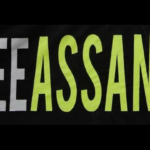The Innocence Project Australia

Over the past few decades the Innocence Project has highlighted problems in the justice system in the US, which can allow for wrongful convictions. One American man, (although not acquitted with the Innocence Project) Jonathon Fleming, spent 25 years in prison for a murder he didn’t commit before finally being declared innocent.
The kicker is that the evidence needed to acquit him had been there all along. Although Fleming spent 25 years in prison, it begs the question, what would have happened if he had been given capital punishment? More about Fleming’s case here.
The Innocence Project is an international organisation that works to help prisoners who could be found innocent through DNA testing. So far, they have saved over 300 people in the US (including 18 on death row) since 1992 when the project started. In 50 of those cases, the real perpetrator has been identified.
It has expanded world-wide and now has a branch operating in Australia.
The Innocence Project Australia
The Australian branch of the Innocence Project is run pro bono by Griffith University and is run by lawyers, students and academics.
The Innocence Project helps when:
- There has been a conviction and the appeal period has expired
- DNA evidence could provide new evidence of innocence
Due to limited resources the Innocence Project Australia has had to restrict the cases it will accept.
It will not get involved in those that revolve around a technicality rather than actual innocence, of sexual offences where there is admission of sexual contact, drug or fraud cases. The Innocence Project also cannot assist in cases where there was a defence provided like lack of intent, self-defence or provocation.
Australian history provides tragic examples of cases where people were wrongly convicted.
In 2012, the first posthumous pardon in Australian history was given – to a man convicted in 1944 of murder, and only in 2004, when skeletal remains were discovered was the case against him definitively proved false.
Fred McDermott had spent 8 years in prison but even after his release due to the serious doubts about his guilt, he spent the rest of his life under the shadow of his conviction.
The sad fact is, that many people wrongly convicted of crime will pay the price for the rest of their life. Even if DNA evidence exonerates them, friends, families and communities may not.
Fred McDermott was never able to shake off the stigma, and nor was the victim in a more recent case of wrongful conviction, Frank Button.
Button was a convicted child rapist, but lawyers on his appeal case retested the exhibits – vaginal swabs and a bed sheet which surprisingly hadn’t been tested before. The DNA was not Buttons, but it did match up with that of a local known sex offender.
Button was freed after 12 months in jail but his friends, including the father of the girl he was accused of raping still don’t believe in his innocence.
He was the first Australian to be freed from jail on DNA evidence. For the whole of Button’s story, click here.
Hopefully, looking to the future, DNA evidence will be able to exonerate innocent suspects, as well as, with the help of groups such as the Innocence Project, free those who are currently serving time for a wrongful conviction.
Advances in the field of DNA have already allowed for considerable progress in this area and it is estimated that within the next decade scientists will be able to tell eye and hair colour, age and ethnicity of a person from a sample of their DNA.
In addition, legislation, which recognises this problem, and the potential of DNA to help prevent wrongful convictions has been introduced in NSW.
NSW was the first state to introduce DNA innocence testing and, since 2007, has had a DNA Review Panel to redress wrongful convictions. Legislation imposes a duty on police officers and other officers to retain certain biological evidence, which could be vital in a DNA case.
The Innocence Project Australia is working to correct failures in our criminal justice system, and to champion the defence of innocent people.
To find out more about the Innocence Project Australia and what they do, visit their website.






